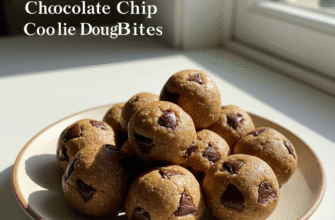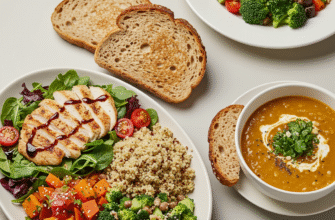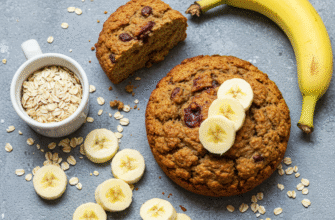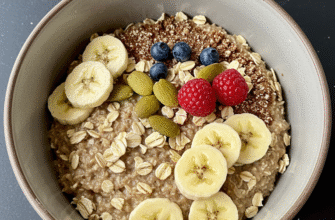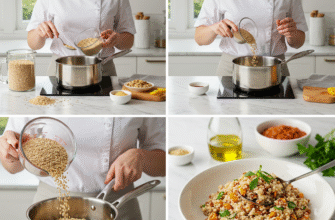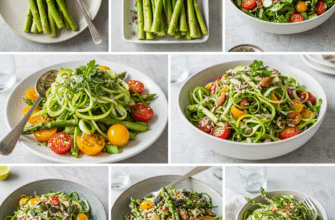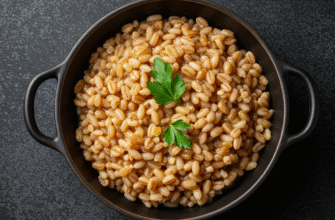That morning cup of coffee is a ritual for millions, a comforting start to the day or a much-needed afternoon pick-me-up. But what about that little something extra? Many of us enjoy a touch of sweetness in our brew, but the standard white sugar packet is increasingly being questioned. Concerns about refined sugars and artificial sweeteners have led many coffee lovers to seek out more natural alternatives. Fortunately, nature offers a diverse pantry of options to sweeten your coffee without reaching for the processed stuff. Exploring these can not only change the flavour profile of your daily cup in exciting ways but also align with a preference for less processed ingredients.
Why Consider Natural Sweeteners?
The shift away from refined white sugar isn’t just a trend; it’s often a conscious choice towards ingredients perceived as less processed or offering different flavour dimensions. While standard table sugar delivers straightforward sweetness, it offers little else nutritionally and undergoes significant processing. Artificial sweeteners, though calorie-free, come with their own set of debates regarding taste and long-term effects, leaving many consumers searching for alternatives they feel better about consuming daily.
Natural sweeteners, typically derived from plants or produced by bees, often undergo less processing than refined sugar. Some may even retain trace amounts of minerals or antioxidants from their source, although usually not in significant quantities relative to a balanced diet. Perhaps the biggest draw is the variety of flavours they bring. Unlike the one-note sweetness of sugar, natural options like honey, maple syrup, or coconut sugar can add complex notes of caramel, fruit, or florals to your coffee, transforming it into a more nuanced beverage. It becomes less about just masking bitterness and more about enhancing the overall flavour experience.
Exploring Your Natural Sweetener Options
The world of natural sweeteners is vast and varied. Finding the perfect one for your coffee might take a little experimentation, as each brings its unique taste and properties to the cup.
Honey
One of the oldest sweeteners known, honey is a classic choice. Produced by bees from flower nectar, its flavour can range dramatically depending on the floral source – from light and floral (like clover or acacia) to dark and robust (like buckwheat or manuka). This variability is part of its charm. In coffee, lighter honeys tend to blend more seamlessly, while darker varieties impart a stronger, distinct flavour that some find overpowering, while others love it. Honey dissolves reasonably well in hot coffee, though it might take a bit more stirring than sugar. It does contain calories and sugars (fructose and glucose), but also trace amounts of vitamins, minerals, and antioxidants. Keep in mind that its flavour profile is quite distinct and will noticeably alter your coffee’s taste.
Maple Syrup
Pure maple syrup, made from the sap of maple trees, is another fantastic natural option, particularly beloved in North America. It offers a rich, warm, and distinct flavour with notes of caramel and woodsy vanilla. Different grades exist, with lighter grades (like Golden Delicate Taste) being milder and darker grades (like Dark Robust Taste) offering a much stronger maple flavour. For coffee, a darker grade often stands up better to the coffee’s inherent bitterness, adding a comforting complexity. Maple syrup dissolves easily in both hot and iced coffee. It primarily contains sucrose but also provides small amounts of minerals like manganese and zinc. Its unique flavour is its main selling point and pairs wonderfully with medium and dark roast coffees.
Stevia
Derived from the leaves of the Stevia rebaudiana plant native to South America, stevia is a powerhouse of sweetness without the calories. Its sweet compounds, called steviol glycosides, can be hundreds of times sweeter than sugar, meaning you only need a tiny amount. This makes it a popular choice for those managing calorie intake or blood sugar levels. Stevia is available in liquid drops, powders, and granulated forms (often bulked up with other ingredients). It dissolves well, especially the liquid form. The main consideration with stevia is its potential aftertaste, which some people describe as slightly bitter or licorice-like. The intensity of this varies by brand and individual sensitivity. Trying different brands or forms might be necessary to find one you enjoy.
Agave Nectar
Agave nectar (or syrup) comes from the sap of the agave plant, the same plant used to make tequila. It’s sweeter than table sugar, so you can use less. It has a relatively neutral flavour, often compared to a milder honey, making it quite versatile. It dissolves very easily, even in cold beverages like iced coffee, due to its liquid form. Agave nectar has gained attention for having a lower glycemic index than sugar, but it’s important to note it’s very high in fructose (even more so than high-fructose corn syrup). While its flavour is agreeable and blends well, its high fructose content is a point of consideration for some individuals focusing on specific dietary approaches.
Check the Label: When choosing natural sweeteners like stevia or monk fruit, always check the ingredient list. Many granulated or powdered versions contain fillers like erythritol, dextrose, or maltodextrin to provide bulk and resemble sugar’s texture. Ensure you know what you’re actually adding to your coffee.
Coconut Sugar
Harvested from the flower bud sap of the coconut palm, coconut sugar (also called coconut palm sugar) has gained popularity as a less refined alternative. It’s not derived from the coconuts themselves, so it doesn’t taste like coconut. Instead, it has a warm, slightly caramel or butterscotch-like flavour, similar to brown sugar but perhaps a bit earthier. It has a granular texture like regular sugar and dissolves similarly, though perhaps slightly slower. Coconut sugar contains sucrose, glucose, and fructose. It retains some nutrients from the palm sap, like minerals (iron, zinc, calcium, potassium) and some antioxidants, though you’d need to consume large quantities to get significant amounts. Its pleasant taste makes it a good direct substitute for brown sugar in coffee.
Date Syrup or Paste
Made simply from dates and water, date syrup or paste is one of the least processed options available. Dates are naturally very sweet and packed with fibre, potassium, and other nutrients. The resulting syrup or paste has a deep, rich, fruity, and caramel-like flavour. It’s thicker than liquid sweeteners like maple or agave syrup, so it might require more vigorous stirring to fully incorporate into hot coffee. In iced coffee, it may settle at the bottom if not blended thoroughly. Its strong flavour profile significantly changes the coffee’s taste, lending it a distinct fruitiness. Because it’s essentially pureed fruit, it retains the fibre from the dates, which differentiates it from most other sweeteners.
Monk Fruit Sweetener
Another zero-calorie option gaining traction is monk fruit sweetener. Extracted from the monk fruit (luo han guo), a small melon native to Southeast Asia, its sweetness comes from compounds called mogrosides. Like stevia, it’s significantly sweeter than sugar, so only a small amount is needed. Many users report that monk fruit sweetener has less of an aftertaste compared to stevia, making it a preferable choice for some. It’s available in liquid and powdered/granulated forms, often blended with erythritol (a sugar alcohol) to give it bulk and ease of use similar to sugar. It dissolves well in coffee. As a relatively newer option on the market, it might be slightly more expensive or harder to find than some other sweeteners, but its popularity is growing rapidly.
Finding Your Sweet Spot
Choosing the best natural sweetener for your coffee ultimately comes down to personal preference. Consider these factors:
- Flavour Impact: Do you want a sweetener that disappears into the background (like some agave or stevia brands) or one that adds its own distinct character (like honey, maple syrup, or date syrup)? Consider how the sweetener’s flavour profile will interact with your preferred coffee roast.
- Sweetness Level: Sweeteners vary greatly in intensity. Stevia and monk fruit are intensely sweet, requiring tiny amounts, while honey and maple syrup are closer to sugar’s sweetness level, and date syrup might be perceived as less sweet due to its complexity.
- Dissolvability: Liquid sweeteners generally dissolve fastest, especially in iced coffee. Granular options like coconut sugar might take a bit more stirring. Thicker pastes like date paste require the most effort to incorporate.
- Texture: Most sweeteners won’t significantly alter the texture of your coffee, but very thick options like date paste might add a slight body.
- Cost and Availability: Prices and accessibility vary. Honey and maple syrup are widely available, while monk fruit might require a trip to a health food store or online shopping.
Start Small: When trying a new natural sweetener, especially potent ones like stevia or monk fruit, begin with a very small amount. You can always add more, but you can’t take away excess sweetness or an overpowering flavour. Taste and adjust gradually to find your perfect balance.
The Joy of Experimentation
Don’t be afraid to try different options! Buy small quantities initially or see if friends have some you can sample. You might find that robust maple syrup is perfect for your weekend dark roast, while a few drops of liquid stevia are ideal for your weekday iced coffee on the go. Perhaps the caramel notes of coconut sugar elevate your favourite medium roast, or the unique richness of date syrup creates a delightful dessert-like coffee experience.
Switching from refined white sugar or artificial packets doesn’t mean sacrificing sweetness. The world of natural sweeteners offers a rich tapestry of flavours and options waiting to be stirred into your next cup. By exploring honey, maple syrup, stevia, agave, coconut sugar, date syrup, and monk fruit, you can customize your coffee in new and delicious ways, finding the perfect natural touch to complement your daily brew.

